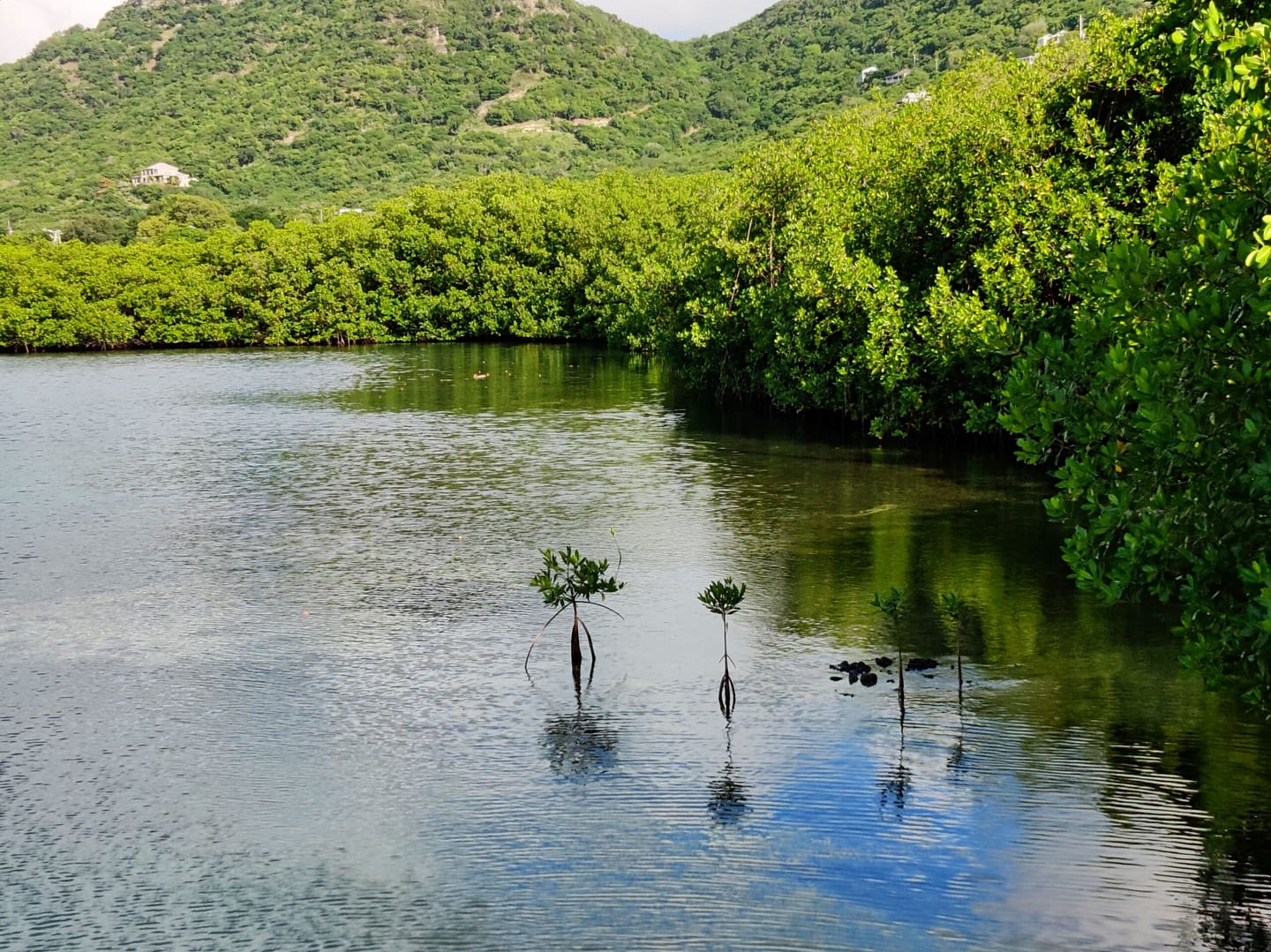
National Parks Authority vigilant about coastal protection as it observes World Wetlands Day
PAUL, English Harbour – 2ndFebruary, 2023The National Parks Authority joined the global community in the observation of World Wetlands Day on Wednesday 2nd February. The theme selected this year was “It’s time for Wetland Restoration”.
The National Park recognises that wetlands are of considerable value to our overall ecosystem and the lives and livelihoods of our people. In Antigua they are easily identifiable by virtuated of the fact they are usually saturated, covered by water or dominated by mangrove vegetation.
Mangrove Wetland Ecosystems are regarded as extremely important for coastal resilience and the support of livelihoods.
Within the Nelson Dockyard National Park (NDNP), this is especially true because of the multiple coastal communities that are heavily reliant on the marine ecosystems, including wetlands.
Mangrove wetland ecosystems are to be found in all the bays and harbours within the NDNP. Some of the major ones that provide benefits to the communities include Marsh Village mangrove wetlands (Falmouth Harbour), Ordnance Bay mangrove wetlands (English Harbour) and Indian Creek.
These are among the reasons why the National Park is committed to ensure their survival and protection. They are protected under the NPA General Regulations 2012 and the Environmental Management and Protection Act 2019.
Under the regulations, the Park maintains its vigilance against any all man-made threats against our Wetlands. For instance, in 2021 it discovered an illegal backfilled site and as a result went about restoring the area to its previous state.
The backfill was removed and the red mangrove seedlings that were planted continue to mature today.
It’s this type of care and effort that will ensure our wetlands can continue to provide important benefits to include nurseries for juvenile fish, coastal protection from storm surge and inundation, sediment trapping of land-based substrate and natural mooring for boat owners. Mangroves trees also provide essential habitat for both native and migrant birds that nest in Antigua and Barbuda.
The NPA conducted a Mangrove Wetland assessment in 2020, which highlighted that mangrove wetlands cover some 260,855m2 of coastal area within the NDNP, identified the health characteristics and threats these ecosystems are facing, and document that approximately 27% of mangrove wetland areas have been loss over the past 70 years.
We will be looking at the various threats to these ecosystems this year, and instituting mitigation measures, such as mangrove restoration, to improve the health and resilience of these ecosystems.
For more information on the wetlands in the National Park please go to our website: https://www.nationalparksantigua.com/eco-wetlands/
Advertise with the mоѕt vіѕіtеd nеwѕ ѕіtе іn Antigua!
We offer fully customizable and flexible digital marketing packages.
Contact us at [email protected]

















Vigilant? What about Yida killing all the mangroves along the east coast?
sentiments exactly
Comments are closed.